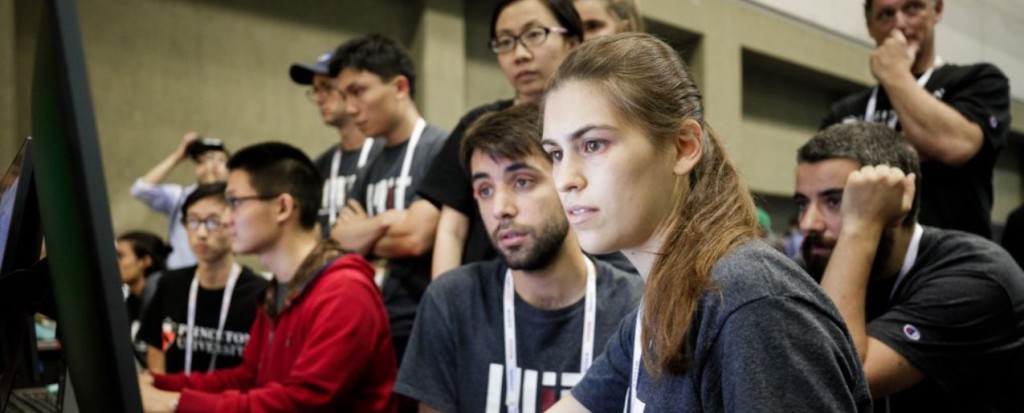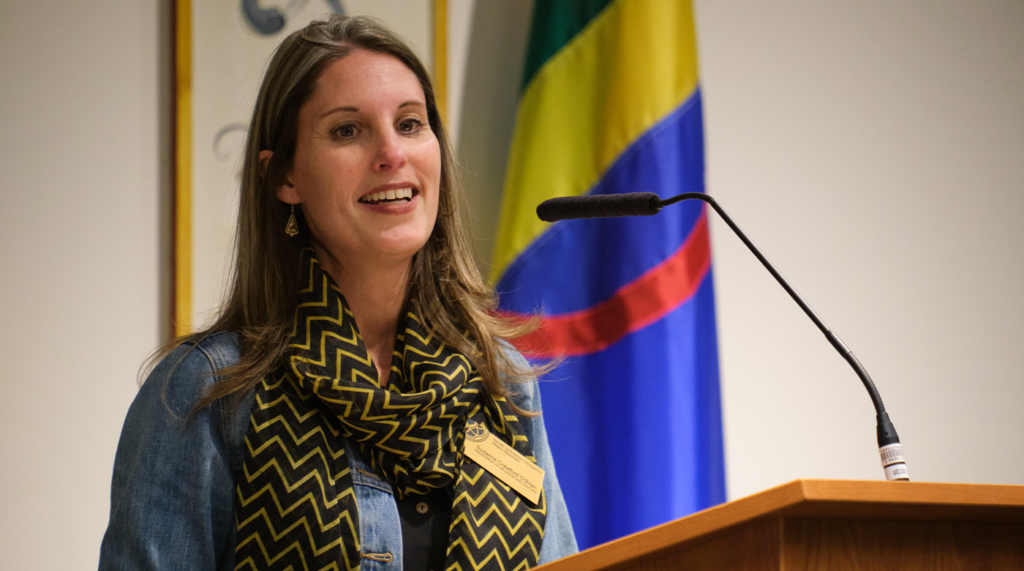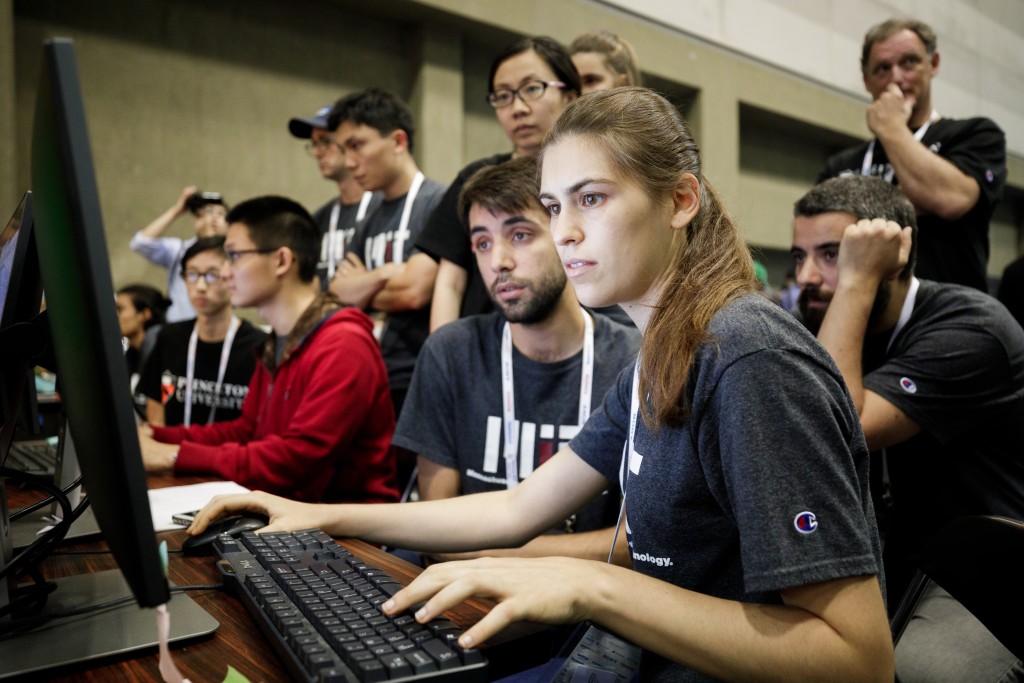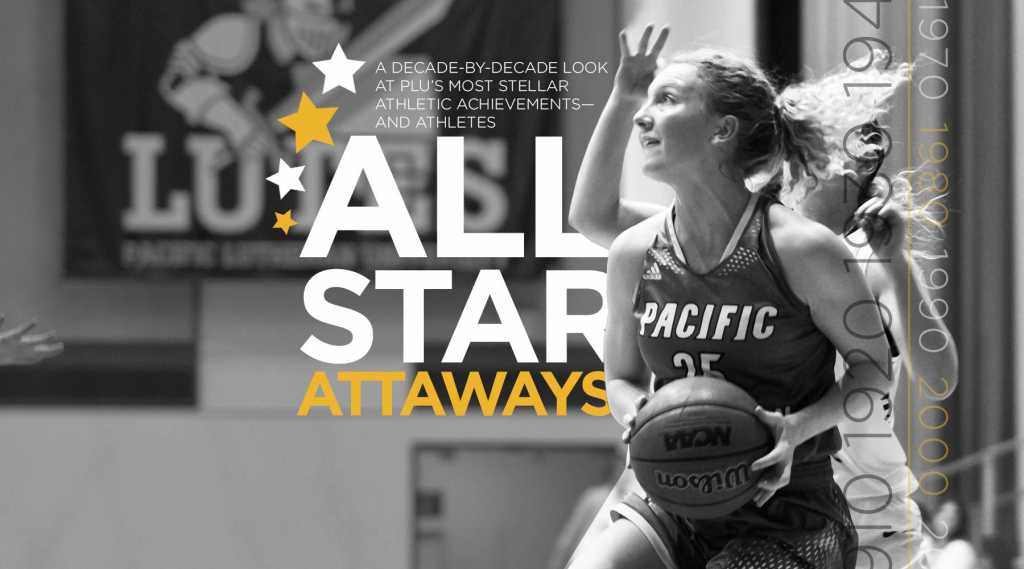Page 82 • (1,409 results in 0.084 seconds)
-
: Studies in Literature and the Environment (4) PHIL 226: Environmental Ethics (4) PHIL 327: Environmental Philosophy (4) RELI 236: Native American Religious Traditions (4) RELI 257: Christian Theology, when topic is “Green Theology” only (4) 3. Environmental Justice – 4 semester hours These courses examine intersections between environmental degradation and structural discrimination and how Indigenous and/or minoritized communities live in and experience these intersections. The courses critically
-

his death in 2016, Professor Minsky worked on the faculty at MIT in the emerging field of artificial intelligence research. When I met Minsky, he was publishing a new edition of his important book The Society of Mind (1988) with a team that I was working with at Microsoft Press. I became captivated by Minsky’s vision of the future in which AI would revolutionize cognitive science, computing, communication, philosophy and other disciplines. As the field of AI evolved, it became a truly
-

year really motivated both students and faculty, and we were able to bring that motivation into the classroom through applied projects. Faculty were able to bring these issues into discussions of literature, history, philosophy, ethics, and environmental equity. How have faculty, staff and students responded to that challenge? I’m continually amazed at how my colleagues pivoted so quickly to online classrooms, how they spent the entire summer learning very different kinds of pedagogies and
-

1958 until his death in 2016, Professor Minsky worked on the faculty at MIT in the emerging field of artificial intelligence research. When I met Minsky, he was publishing a new edition of his important book Society of the Mind (1988) with a team that I was working with at Microsoft Press. I became captivated by Minsky’s vision of the future in which AI would revolutionize cognitive science, computing, communication, philosophy and other disciplines. As the field of AI evolved, it became a truly
-
, Ph.D. Beverley Chalmers (D.Sc.(Med);Ph.D.) Paul Weindling, Ph.D. Moderator: Carrie Ann Matyac, DNP, ARNP 3:45 p.m. - 5 p.m. – (Chris Knutzen Hall, AUC 214)“Doctors Ensnared between Hitler and Stalin: German Medical Scientists in the USSR” – David Zimmerman Beginning in April 1933, university faculty were among the first victims of Nazi persecution. They were dismissed from their post for racial and political reasons. Compared to other academics, medical researchers had a difficult time trying to
-

1972-2003, was named NAIA Division II Coach of the Year in 1983 and 1993 and NCAA Division III Coach of the Year and led his teams to four national championships. He was Inducted into the College Football Hall of Fame in 2005 and remains one of only 11 college football coaches who have won at least 300 games. While no PLU team under his guidance ever suffered a losing record, his rich legacy also includes his sportsmanship-at-its best EMAL (“Every Man A Lute”) coaching philosophy, which is carried
-

New Delete Statistics Academic Programs all programs program website Statistics Undergraduate Minor College of Natural Sciences It’s FREE to apply to PLU When you're ready, we're here. Apply now and fulfill your potential! Get Started Related Programs: Actuarial Science Data Science Mathematics Political Science DISCOVER About Calendar Campus Map Land Acknowledgement Careers at PLU Lute Locker PLANNING Student Payments Textbooks Make a Gift Conference Planning RESOURCES Privacy Non-Discrimination
-
Shannon Seidel, Department of Biology Roberto Arteago, Library Laura Fitzwater Gonzales, Department of Sociology & Criminal Justice Teresa Ciabattari, Department of Sociology & Criminal Justice 2021 Cohort Amanda Sweger, Department of Theatre and Dance Michael Artime, Department of Political Science Somaye Ramezanpour Nargesi, School of Business Ami Shah, Department of Anthropology, and Global Studies Program 2020 Cohort Mary Ellard-Ivey, Department of Biology Christine Moeller, Library Claire Todd
-
Rican Movements aimed to combat the structural racism that disenfranchised these communities through political and educational reforms, such as labor laws, voting rights and the institutionalization of ethnic studies programs, and cultural movements, including literary production and a wide array of visual arts. Latino Studies programs share the vision, theories and praxis of these movements, but broaden the field beyond the examination of the Puerto Rican and Mexican-American experience. The
-

about their political interests and issues the student body should advocate. The task force—Dan Stell ’15, Carly Brook ’15, Katerina Volosevych ’17, Caitlin Dawes ’16, Anne-Marie Falloria ’15 and Naomi Bess ’15—then selected one area of interest popular among the 308 students who responded to the survey and found corroborating bills that might be of interest to students. The popular areas of interest include environmental legislation, healthcare, wellness/community health, tax reform, higher
Do you have any feedback for us? If so, feel free to use our Feedback Form.


